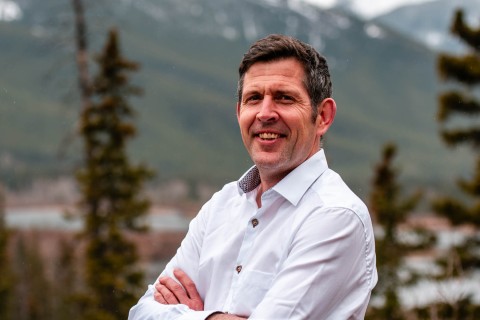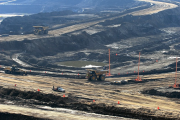The conflict between Marie Lake residents and the energy industry sent a chill down the spine of all Alberta landowners. Could we wake up one morning to find oilsands rights had been sold beneath our feet without our knowledge? Sustainable Resource Development Minister Ted Morton seems to have caught the chill as well.
The battle between Marie Lake cottage owners and the oilsands industry over the fate of their pristine recreational lake is the latest example of the land-use conflicts that inevitably result from the Alberta government's policy of allowing oil and gas development to trump all other voices. That policy is firmly entrenched in Alberta's decision-making processes for energy development. Marie Lake is not an isolated example. Imagine the surprise and anger of Albertans when they realize 54,000 square kilometres of Alberta - an area 12 times the size of Kananaskis Country - has been leased for intensive oilsands development without a hint of discussion as to whether this is in Albertans' best interest.
Minister Morton acknowledged last week that the Marie Lake battle is one conflict among many, and that the government's process for selling oil and gas leases is a big part of the problem. It is ground breaking for a senior minister to state publicly that the sale of mineral rights by Alberta Energy "without much discussion about whether the land is appropriate for development or not" is a recipe for conflict. These comments from the minister responsible for land use put him on a collision course with the Department of Energy which traditionally gets its way on all issues linked to energy development in this province.
Minister Morton appears to recognize the need for a new leasing process that applies the 'look before you leap' principle when considering the sale of oil and gas rights in environmentally-sensitive areas; and that includes meaningful input from Albertans who will be affected by the exploration and development of those lands. He has stated he expects recommendations to this effect to be part of the government's land-use framework which will begin to take shape later this autumn.
Reforming the oil and gas leasing process is a good place to start. Leasing decisions without consideration of the environmental implications of development and without notifying, let alone consulting with, affected land-owners and stakeholders is a policy choice. That choice fuels the 'full-throttle and damn the consequences' approach to oil and gas development that is pervasive in Alberta. It is producing conflict in the Marie Lake area and throughout our boreal forestlands, along the southern East Slopes, and elsewhere in the province. Albertans from all walks of life are starting to ask who are the winners and losers in this boom?
In its April 2007 publication, Haste Makes Waste: The Need for a New Oilsands Tenure Regime, the Pembina Institute identified the impending collision between an out-of-control oilsands leasing process and Albertans' expectations for environmental protection. Focussing on oilsands development, it presented the necessary steps to update the old-fashioned and secretive way the Alberta government leases land. For changes to take place, and to provide certainty to the public and industry, Pembina recommended a temporary moratorium on new oilsands lease sales until the tenure process is reformed.
Then, prior to lifting the moratorium, Cabinet must ensure that land use planning is completed in the affected areas so it informs decisions to grant oilsands rights.
The report recommends conducting environmental assessments, the creation of a public registry to provide opportunities for public comment prior to granting oilsands rights, and implementing a transparent decision-making process based on whether oilsands exploration and development is in the public interest. These proposals should provide a standard for evaluating the land-use framework recommendations that Minister Morton will be releasing later this fall.
Minister Morton has acknowledged the process is badly broken. His next challenge will be to secure broad support from Cabinet and overcome what will likely be stiff resistance from well-entrenched and powerful interests within the Department of Energy and the oil and gas industry.
The outcome will ultimately depend on whether Premier Ed Stelmach and his Cabinet are prepared to make the significant changes required to avoid the battles, like Marie Lake and elsewhere, from turning into a province-wide war that will increasingly pit landowners and other stakeholders against the oil and gas industry. The Marie Lake conflict is clear evidence that a failure to act decisively may have significant political consequences for a government that is increasingly seen as representing the interests of corporations at the expense of the quality of life and concerns for environmental protection that matter most to Albertans.
Steve Kennett and Simon Dyer are senior policy analysts at the Pembina Institute, which provides policy research on energy and environmental issues. Haste Makes Waste: The Need for a New Oilsands Tenure Regime is available at www.pembina.org.






